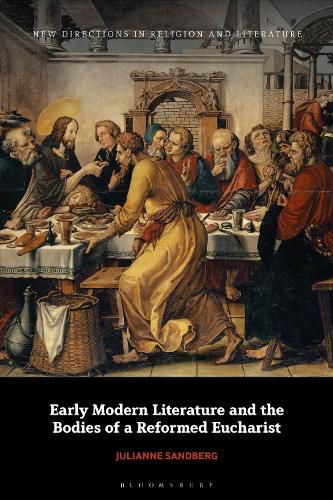Readings Newsletter
Become a Readings Member to make your shopping experience even easier.
Sign in or sign up for free!
You’re not far away from qualifying for FREE standard shipping within Australia
You’ve qualified for FREE standard shipping within Australia
The cart is loading…






Examining what the eucharist taught early modern writers about their bodies and how it shaped the bodies they wrote about, this book shows how the exegetical roots of the Eucharistic controversy in 16th century England had very material and embodied consequences.
To apprehend the nature of Christ's body-its nature, presence, closeness, and efficacy-for these writers, was also to understand one's own. And conversely, to know one's own body was to know something particular about Christ's.
Sandberg provides new insights into how Edmund Spenser, William Shakespeare, John Donne, and Aemilia Lanyer use the reformed eucharistic paradigm to imagine the embodied significance of the sacrament for their own bodies, the bodies of their narrative subjects, and the body of their literary work. She shows the significance of this paradigm was for poets and playwrights at this time to represent the embodied self and negotiate how the body was read, interpreted and understood.
$9.00 standard shipping within Australia
FREE standard shipping within Australia for orders over $100.00
Express & International shipping calculated at checkout
Examining what the eucharist taught early modern writers about their bodies and how it shaped the bodies they wrote about, this book shows how the exegetical roots of the Eucharistic controversy in 16th century England had very material and embodied consequences.
To apprehend the nature of Christ's body-its nature, presence, closeness, and efficacy-for these writers, was also to understand one's own. And conversely, to know one's own body was to know something particular about Christ's.
Sandberg provides new insights into how Edmund Spenser, William Shakespeare, John Donne, and Aemilia Lanyer use the reformed eucharistic paradigm to imagine the embodied significance of the sacrament for their own bodies, the bodies of their narrative subjects, and the body of their literary work. She shows the significance of this paradigm was for poets and playwrights at this time to represent the embodied self and negotiate how the body was read, interpreted and understood.